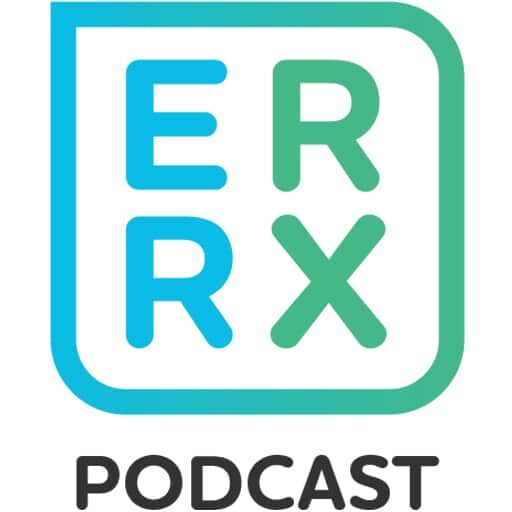Episode 19- Public service announcement: stop the steroid bomb!
Episode Summary:
Stop the steroid bomb! If you are giving 125 mg IV methylprednisolone (Solu-Medrol) to your asthma or COPD exacerbation patients, that may be too much.
Show Notes:
Key Points:
“Public service announcement: stop the steroid bomb!”:
– 125 mg IV methylprednisolone (Solu-Medrol) is equivalent to over 150 mg PO prednisone and that is much too high for asthma or COPD exacerbation management
– The GINA guidelines for asthma and other dosing references suggest 40-60 mg (or 1 mg/kg with a max of 50 mg) IV methylprednisolone or PO prednisone for 5-7 days in adults
– The GOLD guidelines for COPD also recommend the same dose, but for a shorter duration of 5 days only in adults
– Lower doses means lower side effects, including psychiatric disturbances, glucose issues, and insomnia, which are particularly troublesome in our critically-ill patients
– Although methylprednisolone comes in 125 mg vials, it also comes in 40 mg vials at about 1/2 the price
References:
Transcript:
Hello and welcome to Episode 19 of ER-Rx. This week, we take some time to give a public service announcement: stop giving steroid bombs to patients with an asthma or COPD exacerbation. The steroid bomb I’m referring to is 125 mg IV methylprednisolone, or Solu-Medrol.
In the ER, it is common to see high doses of corticosteroids ordered for patients with acute exacerbations of asthma and COPD. And although the optimal dose and duration of systemic corticosteroids is largely unknown, we do have guidance from the GOLD (2019/2020) and GINA (2019/2020) guidelines, as well as package inserts. In the setting of asthma exacerbations, the package insert lists a dose of 40-60 mg daily for 5-7 days. The GINA guidelines recommend 1 mg/kg prednisone per day, and this seems to be the dose that a lot of providers reference. But remember, the guidelines max this dose out at 50 mg. We then continue this dose for 5-7 days in adults. If using IV methylprednisolone, we again use 40-60 mg daily for 5-7 days, even though the conversion from prednisone to methylprednisolone is not exactly 1:1. Now, in the setting of COPD exacerbation, package inserts and the GOLD guidelines also recommend oral prednisone or IV methylprednisolone at a dose of 40-60 mg, but with a shorter duration of 5 days only.
As a side note, in the setting of anaphylaxis, corticosteroids are not considered first-line therapy and are not highly recommended. We talked about this back in Episode 11. However, if you are still adamant about using a corticosteroid, then I guess it would be reasonable to use the 125 mg IV methylprednisolone dose here. Dosing guidelines recommend 1-2 mg/kg or 50-125 mg for 1-2 days.
Some may ask, what is the big deal with giving 125 mg IV methylprednisolone? First of all, lowering the dose can reduce the many side effects associated with corticosteroids, including psychiatric disturbances, glucose issues, and insomnia. These can be much more difficult to manage in a patient who is admitted to an ICU from your ER. Note that psychiatric symptoms can develop in up to 18% of patients that are treated with corticosteroids. Reducing the dose can also reduce cost. Although methylprednisolone comes in 125 mg vials, it also comes in 40 mg vials at about 1/2 the price. And finally, lowering the dose you give your patients would align your practice with national and international guidelines. Just because you don’t personally see these side effects in the ER setting does not mean they do not occur once the patient is discharged or is admitted to the hospital.
Also remember that there is no need to taper the dose of the chosen corticosteroid when using it for less than two-three weeks.
In conclusion, 125 mg IV methylprednisolone is much too high for a patient with an asthma or COPD exacerbation. That is the equivalent of over 150 mg of oral prednisone! Instead, stick to 40-60 mg if you have to give something IV. And, if you’re using oral prednisone, once again use the 40-60 mg dose.
As always, thank you for your time. Don’t forget to tune in next week when we discuss cyanide toxicity and management.

practice changing! thank you for this info
thanks for tuning in!